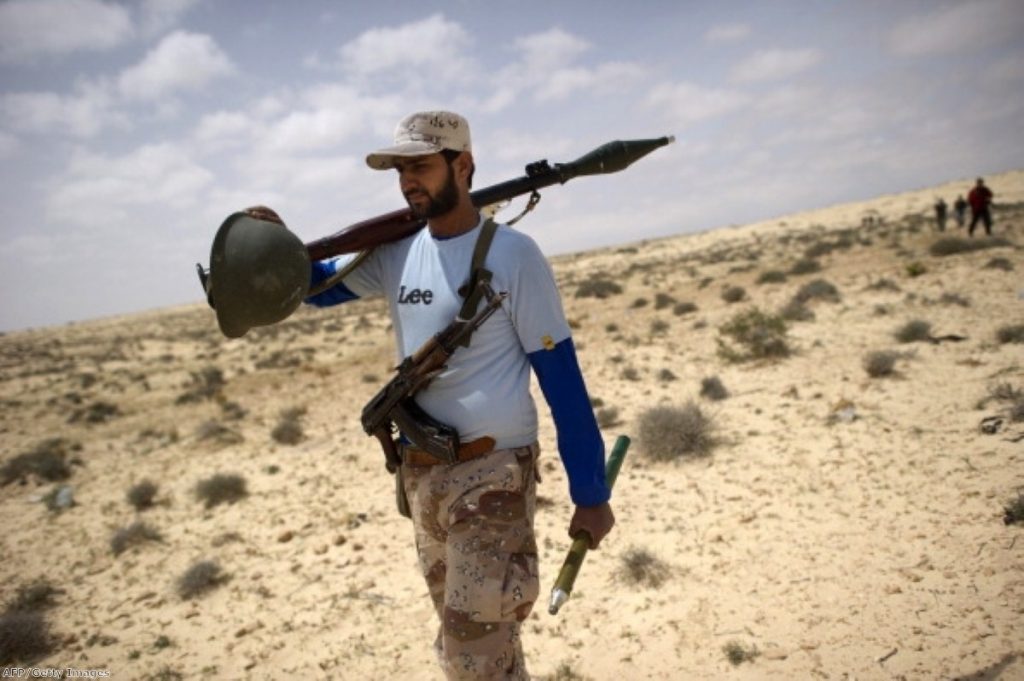PM refuses to rule out arming Libyan rebels
Britain could provide arms for Libyan rebels, David Cameron has hinted.
The prime minister was asked whether he would arm rebels “in a more significant way” during an interview for the American TV network CBS last night.
He replied: “I wouldn’t rule that out, but what we have done so far is we’ve helped the rebels, in line with the UN resolution 1973, to protect civilian life by giving them better communications equipment.”


Earlier this week foreign secretary William Hague told MPs Britain’s deployment of military advisers to help Libyan rebels was consistent with the requirements of UN security council resolutions 1970 and 1973.
“Their sole purpose is to support the national transitional council’s efforts better to protect civilians by advising on military organisational structures, communications and logistics,” he said.
“They are not involved in training or arming the opposition’s forces, nor are they executing or providing operational military advice.”
Britain has also supplied “non-lethal equipment” to Libyan rebels including telecommunications hardware and body armour.
It has also contributed to the establishment of a temporary financial mechanism with the international Libya contact group providing funding for the Benghazi administration.
These steps have not helped break the deadlock between Muammar Gaddafi’s forces and those of the rebels fighting him, however.
“I think we should be both patient and persistent,” Mr Cameron added.
“Patient because, yes, this does take time to get this right. But persistent because we are doing, with our allies, absolutely the right thing.
“We must keep turning up the pressure – military pressure, diplomatic pressure, political pressure – so that we give Libyans a better chance at a better life.”
The latest update from the Ministry of Defence said Nato’s Operation Unified Protector had “continued at a high tempo” on Tuesday.
RAF Tornado and Typhoon aircraft engaged two regime artillery pieces south of Zlitan and seven armed pick-up trucks near rebel-held Misrata, a spokesperson said.
Protecting the besieged city has become critical for the international forces seeking to protect civilians from Colonel Gaddafi’s forces.
Fighting on the eastern front, where loyalists are seeking to push rebels back towards Benghazi, continues sporadically but is viewed as being less totemic.
“When you say it’s been six weeks and they haven’t made progress – you know, six weeks ago we were looking down the barrel of a massacre in Benghazi, and I would say actually we’ve already prevented that,” Mr Cameron said.
“And I think the pressure needs to be turned up even further. And I’ve discussed that with President [Barack] Obama and I know that he takes that view, too.”









